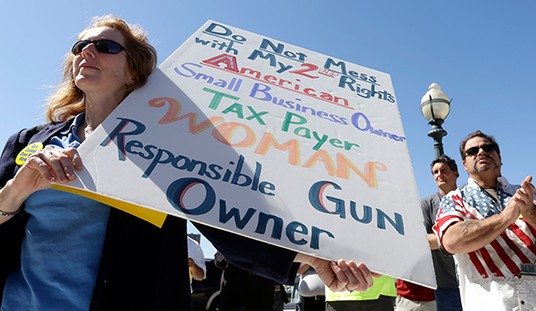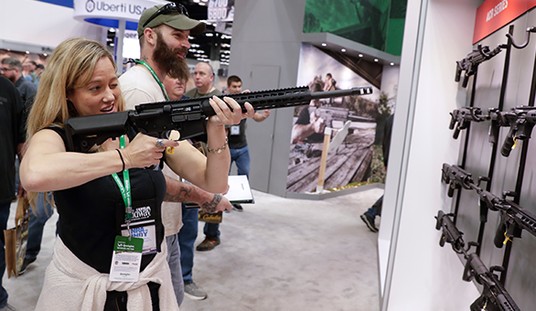I've written a couple of stories on Gallup's poll showing there was still all this support for gun control. One was mostly my own take and another was looking at someone else's take.
Gallup's results were broadly reported, with an interesting twist, really. In "mainstream" outlets--really, anti-gun outlets that expect you to take them as neutral--it was all about the broad support for an anti-gun agenda while right-leaning media outlets reported about the drop in support.
Funny how that goes, isn't it?
Unsurprisingly, the NRA opted to favor the latter interpretation as well, but they didn't just take that. They decided to basically dismantle the entire stupidity of Gallup's efforts.
A recent poll from Gallup purports to show that the majority of Americans want more gun control, but is that the true story?
Released with the headline “Majorities Still Back Stricter Gun Laws, Assault Weapons Ban,” and conducted roughly a month before the 2024 elections, one could be forgiven for thinking that this might have been a winning issue for anti-gunners. But then why did so many of them lose at the ballot box, often by no small margin?
Gallup wrote that the poll found that “56% of U.S. adults support stricter laws covering the sale of firearms in general, while 33% prefer the laws be kept as they are now and 10% want them to be less strict.”
...
The tone then shifted as Gallup wrote, “Americans continue to oppose an outright ban on handgun possession. In fact, the 20% of U.S. adults who would favor a law banning the possession of handguns, except by the police and other authorized persons, is down seven percentage points from last year and statistically tied with the 19% record low in the 65-year trend.”
These findings stand in direct opposition to the first part of the headline, even as it notes that support for such a ban is at an all-time low. As for the latter part of the headline, a slim majority (52%) of whomever was polled were found to support a “a ban on the manufacture, possession and sale of semiautomatic guns, known as assault rifles” in contrast to 47% who are against it. The addition of “known as assault rifles” is particularly misleading, given that it is a politically manufactured term that potentially skews the responses.
I'm not so sure I actually agree with the term "assault rifles" being misleading or skewing the response. At least, I don't see it skewing the results any differently than any other term would. Some people don't realize that your standard AR-15 isn't a machine gun, but calling it something else isn't really going to change that.
And more people will know what you're talking about with "assault weapon" or "assault rifle" than "modern sporting rifle," which the NRA tends to prefer.
But there's a bigger question, and that's with the sample, which was pointed out:
It’s also worth noting that the poll “randomly” sampled only 1,023 adults throughout all 50 states and Washington, D.C., with a margin of error of ±4% and 95% confidence.
Now, some people will get riled up over "randomly" being in quotation marks, but it's a fair point of concern. How random is it? For example, if you're "randomly" sampling a disproportionate number of people from large cities in anti-gun states, you're likely to get very different results than If you randomly sampled people in the rural midwest.
It's a little over 1,000 people in order to represent 330 million people. That's not an overly large sample and if there's the least bit of chicanery with where they're sampled from, it's very easy to see how it can get skewed.
Then, of course, there is the fact that how the questions are asked can skew the results. While I'm not sure "assault rifle" trips people up that much, the phrasing of a question can be rather subtle and get a completely different answer, especially with people who don't have strong opinions on the topic much at all--again, something Gallup failed to evaluate in the least.
So really, Gallup isn't really filling me with confidence that they know what they're doing, and I'm far from alone on that one.








Join the conversation as a VIP Member